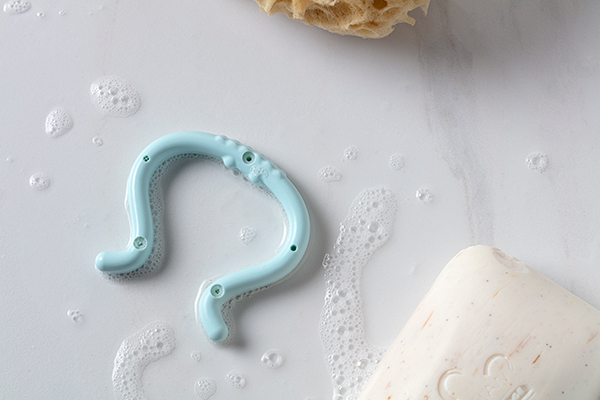Let’s be honest, sex can get messy. It’s easy to forget about cleanliness when you’re in the moment, but being aware of your hygiene before, during, and after sex can minimize the risk of STIs and other health concerns. Plus, being clean is just sexy!
There’s plenty of debate out there when it comes to the best regimen for keeping your sexy parts clean and healthy; but there are some basics that apply to everyone. Here are 10 rules to remember when it comes to sexual hygiene for men.
1: Wash, Dry, and Smell Good
Testicles are prone to smelling bad, sweating, and getting irritated. The skin around a man’s genital area is no different than the rest of his body; it can be washed at least once a day. If you sweat a lot, whether it’s from working out, hot weather, or you’re just the type, make sure to stay clean down there. If you need a bit of help on this front, our friends at Ballsy have perfected the process. Check out their ballwash and other products.
2: Change Your Undies
Guys, change your underwear daily. You can avoid infections, skin irritations, odor, and other major turn-offs. If you work out during lunch, or sweat a lot during the day, consider changing your underwear in the middle of the day to stay fresh for later.
3: Trim Your Pubes
Everyone’s different; some people like more pubic hair, some like less (and some like none). Whatever your preference is, try to keep your pubic hair neat and clean; remember that pubic hair can help you stay cleaner and more comfortable during sex, and is also believed to retain and disperse pheromones (which helps with attraction). TIP: communicate with your partner about what style of pubic hair they like. You might be surprised!
Users of wearable sexual products, like Eddie by Giddy, reported greater success and comfort during sex when their public hair was more closely trimmed.
4: Wear Condoms
Although not as scary as it sounds, sex usually involves some kind of skin tearing and/or bleeding. With that in mind, a condom is always strongly advised for vaginal and anal sex. If you wait to see bleeding as a red flag, be aware: many vaginal and anal tears can be microscopic, but still contribute to transmission of STDs.

5: Never Anus Before Vagina
Bacteria in the rectum can easily be transferred to the vagina during intercourse. While anal sex can stay in your sexual reportoire, remember that if anything has been inside your rectum (fingers, mouth, toy, penis), wash it with soap and water before it touches the vagina. Anal and vaginal bacteria are different, and introducing one to the other can lead to infection.
6: Wash Your Hands
Yes, stopping sex to wash your hands is hard. But, you should try. This simple step can save female partners from a yeast infection. We all have bacteria on our hands that can easily get into the urethra or vagina. A quick wash could be well worth it!
7: Clean Your Sex Toys
Sex toys are a great way to try something new in the bedroom. But, be sure to take care of them, so they take care of you. If you don’t properly clean and store your sex toys they can spread infection and bacteria. It’s recommended that you don’t share sex toys with other people, make sure to wash them frequently with the correct products, and store them in a bag or case.
8: Talk to Your Doc
Get a routine physical exam every year. Ideally you’ll have a solid relationship with your doctor and will feel comfortable being open and honest about your sexual health. If this doesn’t describe you, look around! See if there’s a doctor out there that’s a better fit for you. Talk to your doctor about STDs- get tested even if you’re using condoms.
9: Check Yourself Out
Get in the habit of inspecting your penis and testicles. Look for bumps, redness, sores, blisters, warts, or anything that seems odd or irregular. These types of symptoms are not always serious, but talk to your doctor to be sure, as they could also be a sign of STDs and other health concerns.
Legal Disclaimer: We appreciate you taking part in the discussion about sexual health and wellness. Because we include information about medical conditions and treatments, please note the following: Information provided on this site is for general informational purposes only. Any information provided here is not for the purpose of diagnosing, treating, curing, mitigating, or preventing any type of disease or medical condition. Before beginning any type of treatment regimen you should always seek the advice of your licensed healthcare professional.
And remember, if you think you have a medical emergency, call your doctor or 911 immediately.
All information on this site is provided in good-faith, however, Giddy Holdings, Inc, and its agents and employees, make no representation or warranty of any kind, express or implied, regarding the accuracy, reliability, or completeness of this content. Under no circumstances shall we assume any liability to you for any loss or damage of any kind incurred as a result of the use of this site, or the reliance on any information provided herein. Any application of the material provided here is at the reader’s sole discretion and responsibility.







